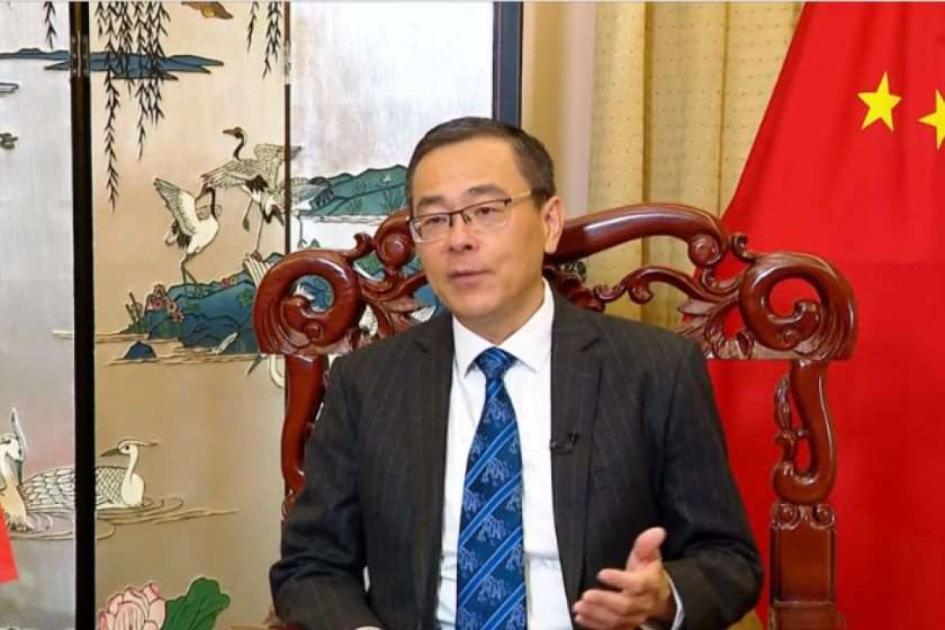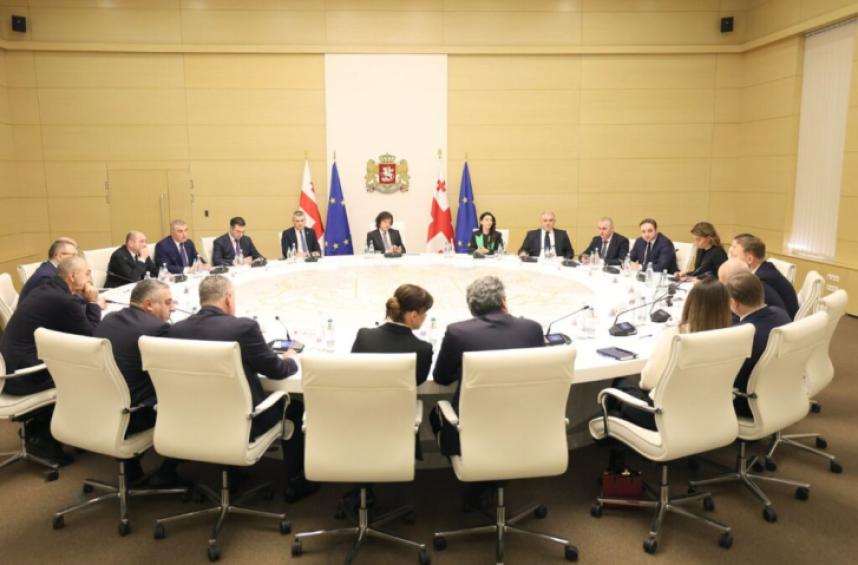
The United States has imposed what it calls "retaliatory tariffs" on numerous countries, including China and Georgia, causing significant harm to the global economy, international markets, and the multilateral trading system, according to Zhou Qian, Chinese Ambassador to Georgia. He made the remarks in an interview with Dghis Kronika.
Ambassador Zhou stated that China has responded firmly to what it sees as arbitrary U.S. tariffs, implementing strict countermeasures to defend both its national interests and broader international economic stability.
"In recent years, the U.S. has repeatedly spoken of a 'rules-based international order,' yet it has never clarified what those rules are or who defines them," Zhou said. "The U.S.’s deliberate launch of a tariff war to pursue its own interests at the expense of others undermines the global economic order and reveals the hypocrisy behind its rhetoric. These so-called ‘rules’ are in fact subjective, self-serving, and rooted in the hegemonic idea of ‘America First.’ Unilateralism and hegemony go against the tide of history."
He emphasized that only by adhering to a truly multilateral system—guided by the principles of the United Nations and the World Trade Organization—can the world ensure equitable development and prosperity.
Zhou noted that China’s strong response to the U.S. tariffs helped secure a temporary 90-day suspension of the duties, offering a brief reprieve for the global economy.
"The tariff war violates economic logic and international norms, and it’s already having negative effects on the U.S. economy," Zhou said. "Recently, the U.S. has made several attempts to re-engage with China, hoping for dialogue. China has carefully considered these moves, taking into account global expectations, domestic interests, and the concerns of American businesses and consumers."
As part of ongoing efforts to de-escalate tensions, Chinese Vice Premier He Lifeng is scheduled to meet U.S. Treasury Secretary Janet Yellen in Switzerland from May 9 to 12.
Ambassador Zhou also pointed out that respected economists, including Nobel laureate Paul Krugman and former U.S. Treasury Secretary Lawrence Summers, have sharply criticized the U.S. tariff policy. They argue that it lacks economic justification, harms the U.S. economy, and could lead to losses of up to $30 trillion.
"China’s position has always been clear: if a confrontation is forced upon us, we will stand our ground. But if dialogue is possible, our door remains open," Zhou concluded. "Regardless of whether we face negotiation or conflict, China is unwavering in its commitment to defend national development interests and uphold international justice. In a trade war, there are no winners. Any meaningful negotiations must be grounded in mutual respect, equality, and shared benefit."
0
0










